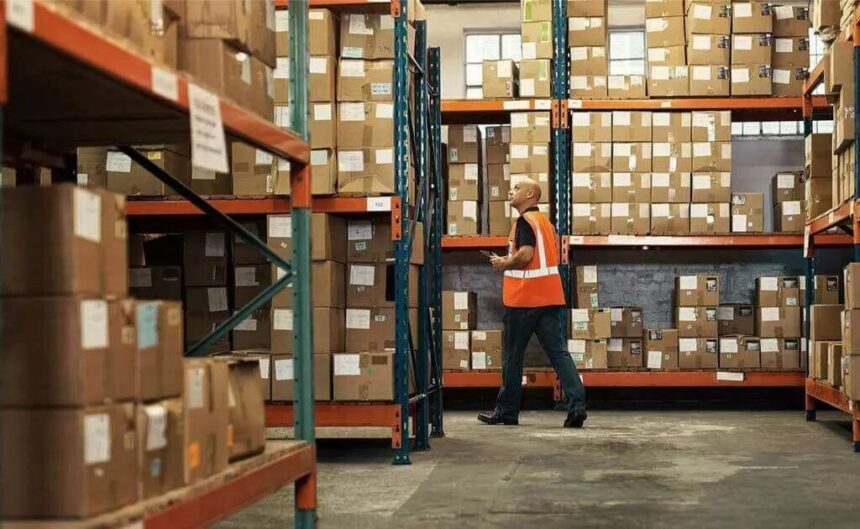Wholesale distributors play a critical role in the supply chain, acting as intermediaries between manufacturers and retailers. They provide businesses with the products they need to meet consumer demand while ensuring the smooth flow of goods from production to retail. If you’re considering working with Distributors or establishing a business model involving wholesale distribution, understanding their functions and advantages is essential for success. In this article, we’ll delve into the role of wholesale distributors, the different types, and the benefits of collaborating with them.
What Is a Wholesale Distributor?
A wholesale distributor is a business that buys products in bulk from manufacturers or other sources and then sells them to retailers, businesses, or even other distributors. They typically operate in high volumes, offering goods at lower prices than retail markets due to the bulk nature of their operations. Wholesale distributors do not sell directly to the end consumer; instead, their customers are businesses that need products for resale.
Their primary function is to facilitate the distribution of goods, ensuring that products are available for retail and commercial businesses to sell to the final consumer. Wholesale distributors can deal in a wide range of industries, from food and beverages to electronics, apparel, automotive parts, and industrial supplies.
Types of Wholesale Distributors
Wholesale distributors vary in their business models, each serving distinct functions within the supply chain. The major types of wholesale distributors include:
1. Merchant Wholesalers
Merchant wholesalers are the most common type of wholesale distributor. They purchase goods in bulk from manufacturers and take ownership of the products. These wholesalers assume the risk of carrying inventory and provide various services to their customers, including warehousing, order fulfillment, and transportation. Merchant wholesalers typically sell to businesses in need of bulk quantities and can focus on specific markets or industries.
2. Brokers
Brokers act as intermediaries without taking ownership of the products. They connect manufacturers with potential buyers but do not handle the products themselves. Brokers earn a commission for facilitating the sale but don’t assume any risk for the inventory. They are commonly used in industries like agriculture, real estate, and certain sectors of the manufacturing world.
3. Agents
Similar to brokers, agents also act as intermediaries but typically represent the interests of a specific manufacturer or supplier. They do not own the products, but they may help manufacturers find buyers and handle the sales process. Agents are commonly seen in industries like textiles, fashion, and foodservice.
4. Wholesale Distributors with Value-Added Services
Some wholesale distributors go beyond basic product distribution by offering additional services such as assembly, packaging, or customized product options. This value-added model enables retailers or businesses to offer unique products to their customers without needing to invest in these services themselves. These distributors might focus on industries such as electronics, furniture, or medical supplies, where additional customization is common.
The Role of Wholesale Distributors in the Supply Chain
Wholesale distributors act as vital links in the supply chain by bridging the gap between manufacturers and end consumers. They help manufacturers expand their reach by distributing goods to a wide range of retail outlets and businesses. In turn, retailers and businesses can focus on their core operations, leaving the logistics, inventory management, and procurement to the wholesalers.
Here are some of the core functions of wholesale distributors:
- Inventory Management and Warehousing Wholesale distributors maintain large quantities of inventory to ensure that products are readily available when needed. They have the facilities to store goods in bulk, reducing the need for manufacturers to keep their own warehouses or distribution centers.
- Bulk Purchases Manufacturers often don’t have the capacity to sell directly to a large number of retail outlets or businesses. Wholesale distributors act as intermediaries, purchasing goods in large quantities and selling them to multiple customers.
- Logistics and Transportation Distributors handle the logistics of getting products from manufacturers to retailers. This includes coordinating shipments, managing inventory, and organizing the delivery of products. They often work with freight services to move goods efficiently.
- Providing Product Knowledge Many distributors offer expert knowledge about the products they sell, including specifications, use cases, and trends. This can help retailers make informed decisions about what to stock and sell to their customers.
- Financial Support Distributors often extend credit to retailers, allowing them to purchase products on terms that support cash flow management. This flexibility is particularly beneficial for smaller businesses that might not have enough capital to pay upfront.
Benefits of Working with Wholesale Distributors
Collaborating with wholesale distributors offers numerous advantages for businesses. Whether you are a retailer, a manufacturer, or a company in need of specific products, a wholesale distributor can streamline your operations and reduce costs. Here are some key benefits:
1. Cost Savings
One of the primary reasons businesses work with wholesale distributors is the cost savings. Since distributors buy products in bulk directly from manufacturers, they can negotiate better prices, passing those savings on to their customers. This enables businesses to obtain products at lower costs than they would if they purchased them directly from manufacturers or other sources.
2. Access to a Wide Range of Products
Wholesale distributors offer a broad range of products from various manufacturers, giving businesses access to products they may not be able to find elsewhere. This diverse selection is especially valuable for businesses that need to stock multiple categories of products or source unique items for their customers.
3. Faster and More Efficient Supply Chain
Working with a wholesale distributor speeds up the process of getting products from manufacturers to the market. Distributors have established networks and logistical expertise that help them move goods more efficiently. This enables businesses to reduce the time it takes to restock their shelves and meet customer demand.
4. Expertise and Market Knowledge
Wholesale distributors often specialize in particular industries, and they have valuable expertise regarding the products they carry. They can provide useful insights on trends, demand cycles, and best practices for selling specific goods. This knowledge can help businesses make better purchasing decisions and maximize their sales potential.
5. Reduced Risk
By acting as an intermediary, distributors reduce the financial risk for businesses. Retailers do not need to invest large sums of money upfront in inventory and may not have to worry about unsold products. Wholesalers take on the responsibility of managing inventory and often offer return policies or other risk-reducing measures.
6. Convenient Logistics and Delivery
Distributors often have efficient systems in place for storing and delivering products, which helps businesses avoid dealing with logistics themselves. This is particularly valuable for small businesses that do not have the capacity to manage large shipments. Additionally, many distributors offer drop-shipping services, where they send goods directly to consumers on behalf of the retailer.
How to Choose the Right Wholesale Distributor
Selecting the right wholesale distributor is a critical decision for any business. When choosing a distributor, consider the following factors:
- Product Range: Ensure that the distributor offers the products you need for your business, and verify the quality of those products.
- Pricing and Payment Terms: Compare prices from different distributors and look for those that offer competitive rates. Also, check their payment terms and whether they provide any credit or financing options.
- Reputation: Research the distributor’s reputation, reading customer reviews and asking for references from other businesses. A reliable distributor will have a solid track record of meeting delivery deadlines and providing quality products.
- Shipping and Delivery Times: Ensure the distributor can meet your delivery requirements. Look for those who offer timely and reliable shipping services.
- Customer Support: Excellent customer service is essential, especially when dealing with bulk orders. Choose a distributor that is responsive to queries, offers easy returns, and supports you through the order process.
Conclusion
Wholesale distributors are an indispensable part of the supply chain, offering numerous benefits for businesses that rely on bulk purchases. They provide businesses with cost savings, access to a wide variety of products, and logistical support, all while reducing risk and improving the efficiency of the supply chain. Whether you’re a retailer looking to stock your shelves, a manufacturer aiming to expand your reach, or a business searching for specific goods, partnering with a reputable wholesale distributor can help ensure your success. By understanding the key functions and benefits of wholesale distributors, businesses can make informed decisions that improve their overall operations and profitability.






